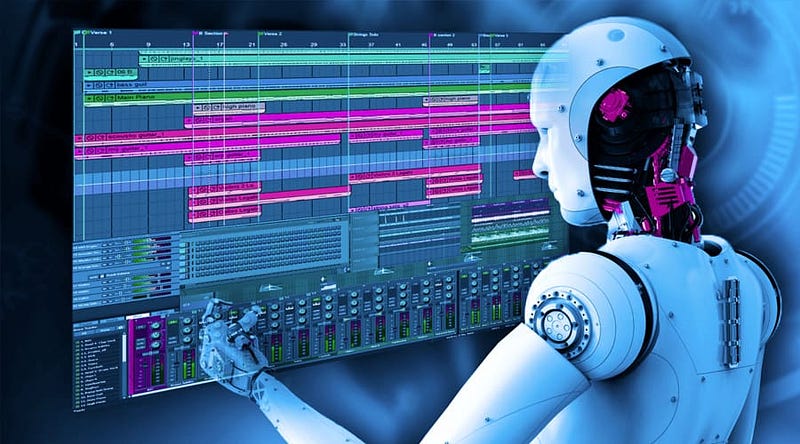
Introduction
In the fast-paced and ever-evolving realm of artificial intelligence (AI), one area that has garnered substantial attention is AI’s impact on the creative arts, specifically music. AI’s capability to analyze, learn, and generate new content has been harnessed to produce unique compositions, forever changing our perception of music production. In this comprehensive exploration, we delve into how revolutionary AI music generation systems are taking song creation to the next level.
AI and Music: A Harmonious Fusion
Music, at its core, is a complex blend of patterns, rhythms, harmonies, and emotions. It’s a form of expression that transcends language and cultural barriers, providing a fertile ground for AI implementation. AI’s ability to identify patterns and learn from data makes it a perfect tool to understand and create music, pushing the boundaries of what’s conceivable in the domain of song creation.
The Advent of AI in Music Generation
The initial use of AI in music revolved around understanding and categorizing existing musical pieces. Machine learning algorithms were trained to analyze and classify songs based on various attributes like genre, rhythm, and mood. These systems provided valuable insights into the structure and patterns underlying different types of music.
The next logical step was for AI to generate music. In recent years, we’ve seen the rise of AI-powered systems capable of producing original compositions, prompting a significant shift in the music industry. The introduction of AI music generation systems such as OpenAI’s MuseNet and Google’s Magenta has demonstrated the enormous potential of AI in this creative space.
The Mechanics of AI Music Generation
AI music generation systems typically utilize a type of machine learning known as deep learning, particularly a structure called Recurrent Neural Networks (RNNs). These networks are proficient at learning patterns in sequential data, making them ideal for music, which is fundamentally a sequence of notes.
AI music generators are trained on vast datasets comprising a variety of music genres, styles, and structures. The systems learn the patterns and intricacies from these datasets, enabling them to generate new musical pieces with similar characteristics.
A significant advancement in AI music generation has been the incorporation of Transformer models. These models, initially developed for natural language processing tasks, have proven to be highly effective for music generation due to their ability to understand long-range dependencies in sequential data, thus generating more coherent and musically pleasing compositions.
AI Music Generation: Beyond Just Melodies
Early iterations of AI music generators focused mainly on creating melodies. However, the revolutionary evolution of these systems now allows them to go beyond mere melody generation. They can produce intricate compositions with multiple instruments, imitate specific musical styles or artists, and even react to real-time inputs, creating a collaborative music experience between the AI and human musicians.
One of the fascinating applications of these advanced AI systems is generating ‘adaptive’ or ‘responsive’ music — music that can change in real time based on user interactions, mood, or environment. This capability has significant potential in areas like video game scoring, where the music can dynamically adjust based on the gameplay, enhancing the player’s immersive experience.
The Impact on the Music Industry
AI music generation is changing the landscape of the music industry. It’s becoming a powerful tool for composers and musicians, providing new avenues for creativity. It can generate inspiration for a song, assist in creating complex arrangements, and even produce complete compositions.
While some fear that AI might replace human composers, the reality is that AI serves as a tool, not a substitute. It offers a new palette of possibilities for musicians to explore, enhancing rather than replacing human creativity. The most compelling music often results from a harmonious blend of AI capabilities and human imagination.
Conclusion
The integration of artificial intelligence into music generation is indeed revolutionizing song creation. By learning from vast musical datasets and mimicking complex musical structures, AI music generators are producing unique and compelling compositions, effectively complementing human creativity. As these systems continue to advance, we can look forward to a future where the synergy between AI and human musicians yields a rich tapestry of musical innovation.
Find more … …
Knowledge Generation Prompting: An Extensive Exploration in Prompt Engineering
PostgreSQL Example – How to Select Values Between Two Values
Comprehensive Guide to Artificial Intelligence: Unleashing the Power of AI